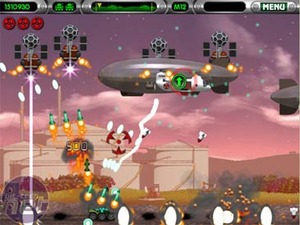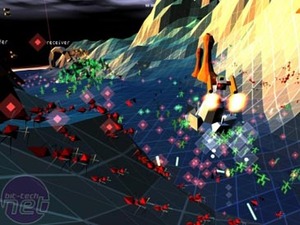Steam powered
Valve Software's Steam service is the largest software digital distribution network in the world. The service has over 13 million accounts as of the end of May, 2007 - more than double the size of Microsoft's Xbox Live (the next largest, at six million).Most of you are familiar with the fact that Steam debuted as the delivery vehicle for Valve's Half-Life 2, though it was actually around for two years before (starting with Counter-Strike 1.4). Steam now supports a robust 150 games (not including mods) from a variety of publishers, including everything from the obvious FPS games to strategy to RPGs.
Of course, it didn't get that way overnight. Steam stepped on a lot of toes and had a lot of stumbles out of the gate. System failures, access problems and other glitches seemed to show all of the weak points of digital distribution. But that was then, and this is now - the rollout of the Steam we know today, v.3.0, fixed many of these problems and proved to be incredibly reliable. With the past now behind it, the future is looking pretty rosy indeed.
Gaining big support
In order to get 13 million gamers on board, you have to get some pretty big titles - and that means their publishers. And how do you do that, when you directly compete with their business? A publisher's job is to bring a developer's game to the public, for a pretty hefty sum.Getting the indie developers, of course, is a lot easier...and that is exactly what Valve did, starting with itself. After the fallout with Vivendi Universal regarding the original Half-Life and the costs for its sequel, Valve decided to give Steam its first shot as more than just a match-making and anti-cheat program. It used Steam as the activation method for HL2, providing it with each boxed copy.
With the HL2 bomb dropped, it was time to get serious with indie developers. "Through our releases via Steam and those made by independent developers, it was proven that the two channels can co-exist and create additional distribution avenues which, in turn, open additional revenue streams," Doug said about this time. That time proved the benefits of digital distribution to larger publishing houses, though.


Publishers of games big and small, such as Capcom (maker of Lost Planet) and Popcap (maker of all things addictive), have both brought titles to Steam.
Companies like Capcom and smaller game developer Popcap began to salivate over the opportunity to have bigger, popular titles opened up to "convenience buying," that period of time where you are bored out of your skull and staring at your computer, wondering what to do next. You're not likely to go to the store, but you're definitely more likely to spend a little money for something new. These sales were previously missed by not having digital distribution, and the indie sales were beginning to show that.
Not only does Steam allow a new method to get the original game out, it showed to be a great way of making a game better particularly in its multiplayer experience and after-release support.
"Profits are the initial driver. Beyond that though, there’s a tremendous collection of features Steam offers that benefit the games, regardless of the channel through which they are sold. For example, many publishers are working with one third party for copy protection, another for server browsing, and still another for anti-cheat. Steam offers all of these functions and more – such as the ability to run Free Weekends and grant Guest Passes -- for no additional cost."
The cost of business
Where Doug specifies "no additional cost" should of course not be confused with no cost at all. The Steam network is obviously not just a freebie for anyone wanting to join. But surely it couldn't be that expensive, or indie developers would have a very hard time coming on board.

Independent games like the WW2 shooter Red Orchestra and the fanatically loved Darwinia both have Steam to thank for their distribution on the PC.
"We’re open to working with anyone who’d like to distribute a finished game," Doug said, "as evidenced by Rag Doll Kung Fu, Red Orchestra and Darwinia, Steam is a fantastic launching pad for independent studios – even one-man studios such as Garry Newman who created Garry’s Mod. There are no upfront Steam costs for the developers – all revenue sharing is based upon sales and profits."

MSI MPG Velox 100R Chassis Review
October 14 2021 | 15:04










Want to comment? Please log in.